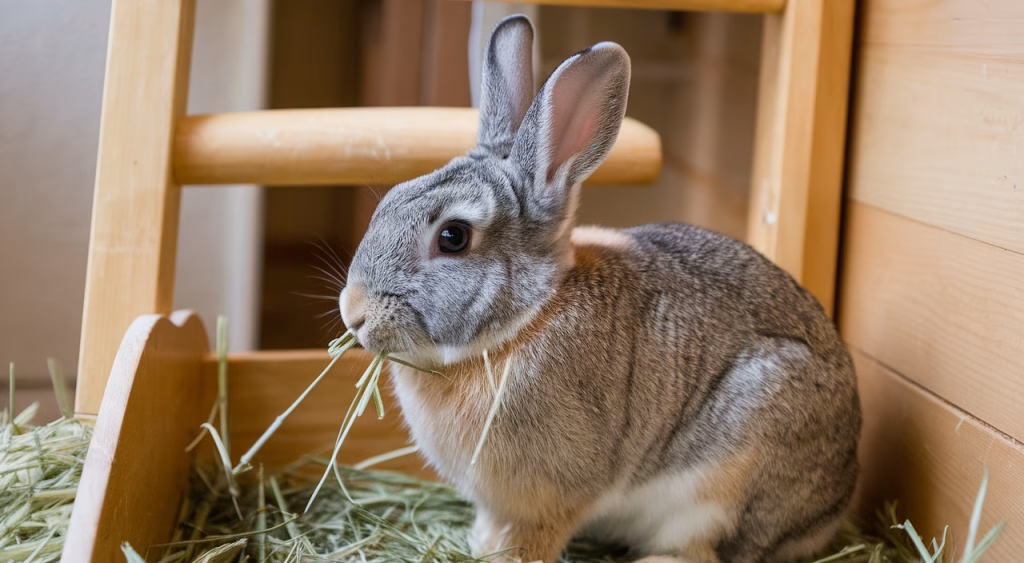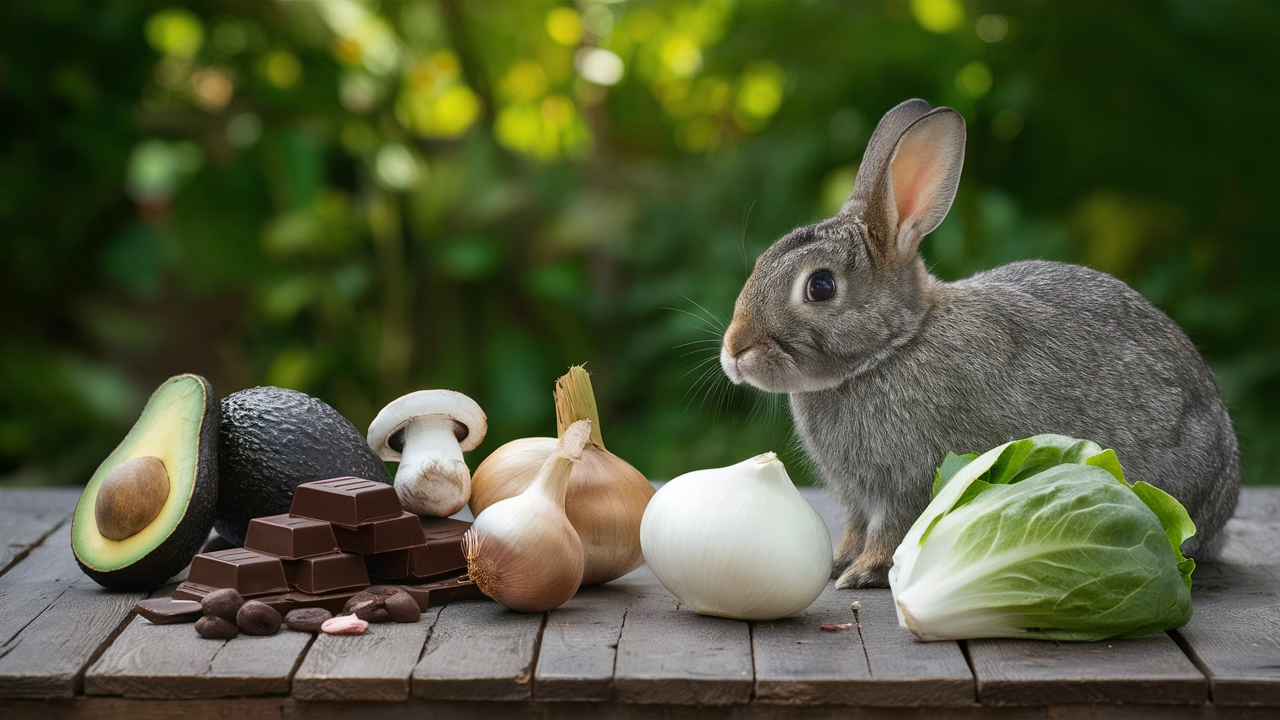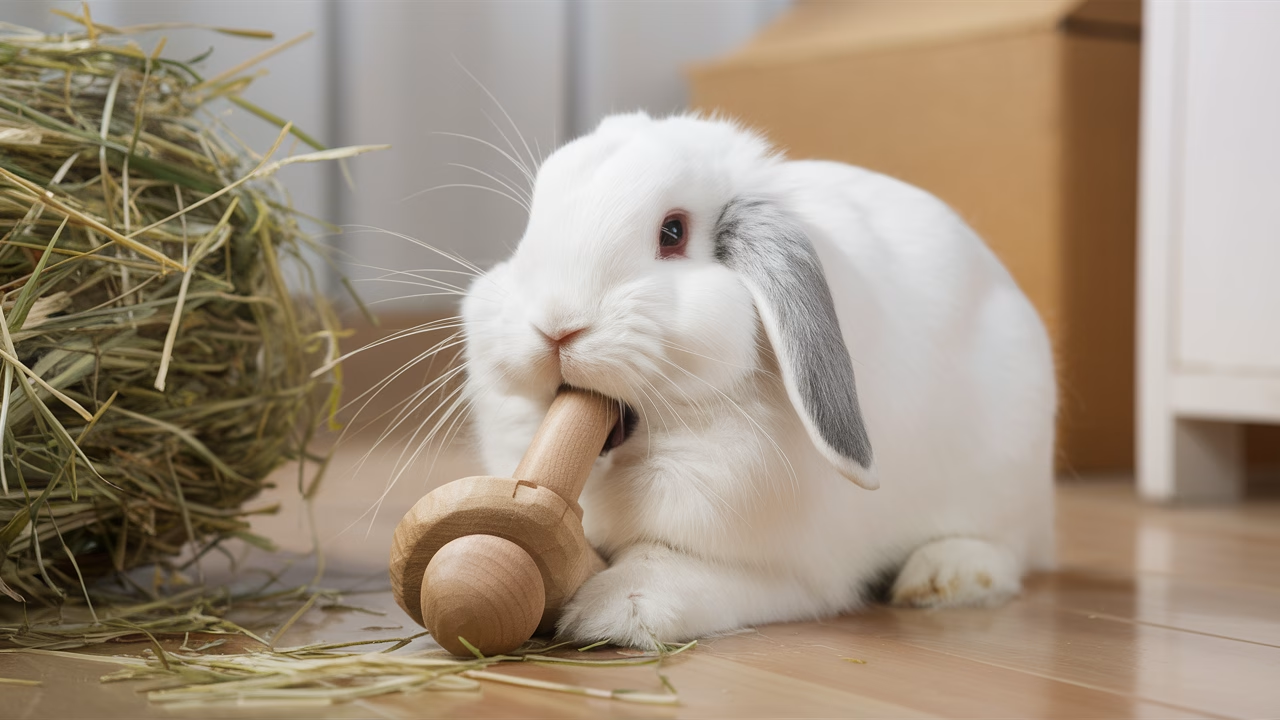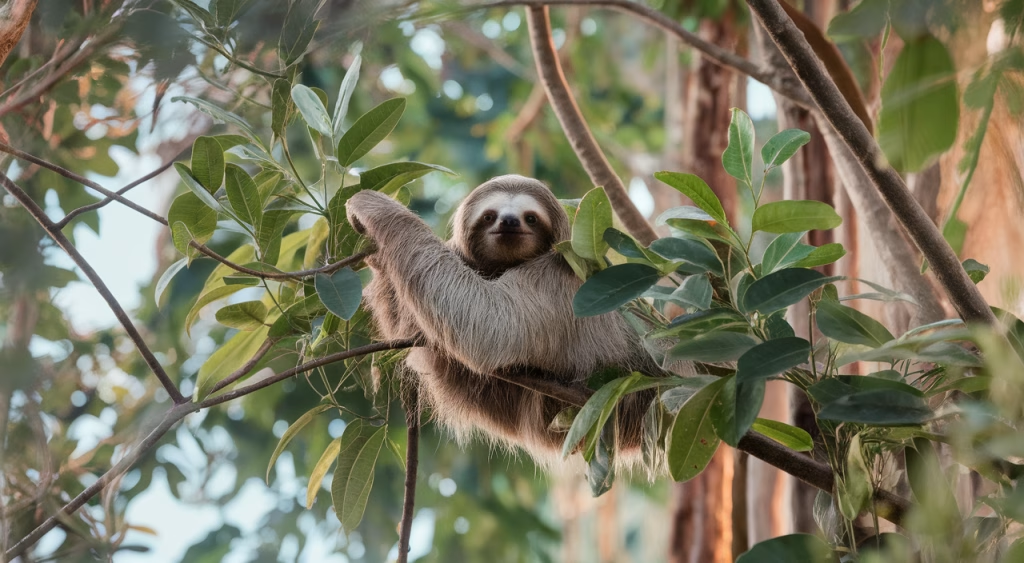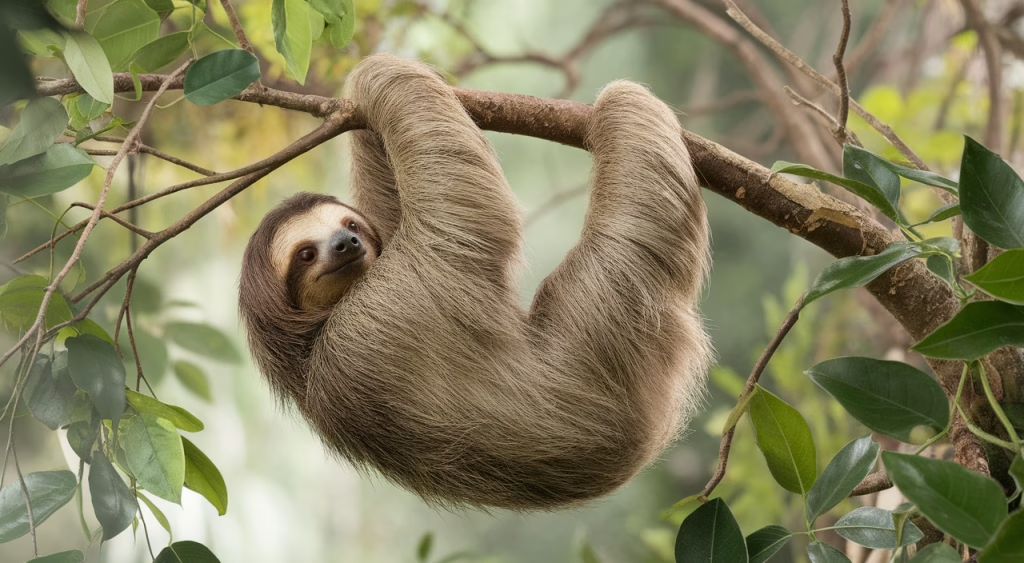What are the most important foods to avoid in a rabbit’s diet?
Some of the most critical foods to avoid include avocados, chocolate, onions, garlic, and iceberg lettuce—all of which can result in severe or fatal health consequences for your rabbit. Understanding these toxic foods for rabbits helps ensure safe and effective rabbit care.
TL;DR Summary
- Rabbits are strict herbivores: Their digestive system is sensitive and incompatible with many human and pet foods.
- Toxic foods to avoid: Avocados, chocolate, onions, garlic, mushrooms, and iceberg lettuce can be deadly.
- Problematic but not toxic foods: Dairy, legumes, seeds/pits of fruits, processed foods, and sugary treats harm digestion.
- Safe food options: Hay, leafy greens, specific fruits and vegetables, and limited high-fiber pellets support rabbit health.
- Healthy chewing options: Untreated wooden toys, apple sticks, and cardboard promote dental and mental health.
Why Proper Nutrition is Critical for Rabbits
When it comes to rabbit care, diet is not just important—it’s foundational. Rabbits have a highly specialized digestive system built to process fibrous plant material. Creating a proper rabbit diet can result in not just comfort but vibrant health and longevity. Understanding what they can and cannot eat is the first—and most vital—step in responsible ownership.
Unlike dogs, cats, or even guinea pigs, rabbits rely heavily on a constant intake of hay and leafy greens to function optimally. Their teeth never stop growing, and their intestines depend on fiber-movement to maintain regular motility. Think of their GI system as a conveyor belt that stops running if you put the wrong fuel in it.
Understanding Toxic Foods for Rabbits
Common Foods You Should Never Feed Your Rabbit
Here’s a breakdown of the most dangerous toxic foods for rabbits that must be avoided entirely in rabbit care:
| Food | Toxin or Risk | Consequences |
|---|---|---|
| Avocado | Persin | Respiratory distress, heart failure, potentially fatal |
| Chocolate | Theobromine, caffeine | Cardiovascular and neurological collapse |
| Iceberg Lettuce | Lactucarium | Diarrhea, lethargy, nutrient deficiency |
| Mushrooms | Unknown fungal toxins | Organ damage, digestive shutdown |
| Garlic, Onion, Leeks | Organosulfur compounds | Hemolytic anemia, lethality in high doses |
| Rhubarb | Oxalic acid | Kidney issues, calcium blockages, tremors |
| Raw Potatoes | Solanine | Neurological issues, stomach upset |
| Meat, Fish, Eggs | Animal protein | Indigestibility leading to GI distress |
Even small amounts of these toxic foods for rabbits can be dangerous. Rabbits process everything differently, and their tolerance thresholds are much more delicate compared to other pets.
Harmful Foods to Avoid at All Costs
Beyond immediate toxicity, there are several foods that, while not lethal right away, can severely harm your rabbit’s digestive integrity and long-term health in your rabbit diet.
- Fruit Seeds and Pits: Apple seeds and cherry pits contain cyanide, a potentially deadly substance.
- Dairy Products: Post-weaning rabbits cannot digest lactose, making milk and yogurt a digestive nightmare.
- Commercial Pet Treats: Loaded with sugar and additives, these undermine rabbit food safety and lead to obesity or liver issues.
- Kidney Beans, Broad Beans: The excess protein and complex sugars impair gut function.
- Hot Peppers: While bell peppers are fine, hot varieties irritate a rabbit’s sensitive GI lining.
- Processed Foods (bread, cereal, pasta): Their high-carb profiles disrupt digestion and encourage weight gain.
- Olives: Often cured in brine, they’re high in sodium—a mineral rabbits should consume very sparingly.
- Toxic Houseplants: Daffodils, ivy, and philodendrons may silently pose a threat when rabbits free-roam indoors.
Healthier Alternatives and Recommendations
It’s easy to get discouraged seeing such a long list of toxic foods for rabbits. But here’s the good news: rabbits thrive on simple, clean, and fiber-rich foods. The equation for a successful rabbit diet is built on hay, safe vegetables, rabbit-safe fruits, and fresh water—with the occasional healthy treat.
Hay as the Foundation
Think of hay as the main course in your rabbit diet—always on the menu:
- Timothy Hay
- Orchard Grass
- Meadow Hay
These help wear down teeth naturally and fuel the cecum (a vital digestive organ in rabbits). Always ensure hay is abundant and fresh for optimal rabbit care.
Safe Vegetable Options for Rabbits
Vegetables complement hay and add variety to your rabbit diet:
- Romaine Lettuce
- Kale (in moderation)
- Arugula
- Cilantro
- Dandelion Greens
Rotate these weekly to provide a full nutrient profile in your rabbit care routine. Avoid serving wilted or dirty greens.
Best Fruits for Rabbit Treats
Safe treats for rabbits should be fruit-based—not a dietary staple. Offer no more than 1 teaspoon per 2 lbs. of bunny body daily:
- Apple (no seeds)
- Strawberries
- Blueberries
- Raspberries
Chewing Treats for Dental Health
Rabbits need to gnaw to keep their ever-growing teeth in check. Safe chewing toys include:
- Untreated wooden blocks
- Applewood sticks
- Cardboard tubes (from toilet paper rolls)
Avoid toys treated with varnish or artificial scents when selecting chewing toys for your rabbit care routine.
Safe Treats and Chew Toys for Happy Bunnies
From a mental enrichment and dental care perspective, safe treats for rabbits and chewing toys go beyond nutrition in your rabbit care.
- Stuff a cardboard roll with hay and herbs for a DIY toy.
- Rotate different textures: woods, grasses, and veggies keep your rabbit curious.
- Avoid colored or flavored woods—they may contain chemicals not safe for chewing.
Ensuring Long-Term Health with a Balanced Diet
Creating a balanced rabbit diet requires a mix of vigilance and love. Rabbits thrive when their daily routine includes:
- Unlimited hay to maintain digestive and dental health
- Daily greens from safe leafy options
- Occasional safe treats for rabbits with seeds carefully removed
- Fresh water changed twice daily
- Limited, high-fiber pellets
- Safely chosen chewing toys and enrichment items
Remember, every rabbit is unique in their rabbit care needs. Monitor their stools, energy levels, and appetite to spot issues early. And when in doubt—hay always wins in a healthy rabbit diet.
Frequently Asked Questions
- Can rabbits eat bananas? Yes, but only in small amounts as safe treats for rabbits. Bananas are high in sugar and fiber, which can cause gas and bloating if overfed.
- Is spinach safe for rabbits? Spinach contains oxalates and should be fed in limited quantities in your rabbit diet, ideally rotated with other greens.
- How much fruit can I safely give? Limit safe treats for rabbits to 1 teaspoon per 2 pounds of body weight per day due to sugar content.
- Can rabbits drink tap water? Absolutely. As long as it’s safe for humans, it’s safe for rabbits. Filtered is even better in some regions.
- Why won’t my rabbit eat hay? Dental pain, boredom, or stress may be a cause. Try offering a different hay variety or seeing your vet for rabbit care advice.
- Do rabbits need salt or mineral licks? Not usually. A balanced rabbit diet provides everything they need unless recommended by a vet.
- Are carrots safe daily? Despite what cartoons say, carrots are high in sugar and should be treated like safe treats for rabbits—offered sparingly.
Comparision Chart: Harmful vs. Safe Rabbit Foods
| Category | Unsafe Choices | Safe Alternatives |
|---|---|---|
| Leafy Greens | Iceberg, Swiss chard | Romaine, kale, dandelion greens |
| Fruits | Grapes with seeds, cherries | Apple (seedless), strawberries |
| Proteins | Meat, fish, eggs | None – rabbits don’t need protein-rich food |
| Treats | Store-bought mixes, cookies | Fresh herbs, apple sticks |

